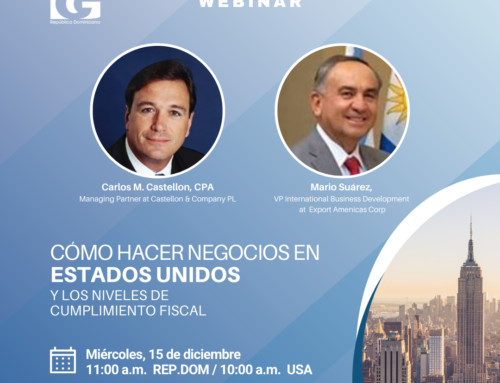The United States Attorney has discovered that many of the US citizens and residents (taxpayers) living abroad have not issued their statements to the IRS (American prosecutor). This is a crime in the United States subject to penalties and taxes that can have a great impact on the taxpayer.
In our practice we have seen families who come to the United States and apply for residency (Green Card), others become citizens and others come only for their children to be born in this country and obtain American citizenship automatically. Then they return to their country to live and do not know that they have a legal responsibility to continue filing their tax returns in the United States for their income worldwide.
In this global world that governments are communicating and crossing banking information among them through various agreements that already exist, it is only a time before they find these American taxpayers who have not followed the law of the country.
Now there is an amnesty program specifically for these taxpayers without having to pay penalties. Only making your statements for the last 3 years are put in order legally.
Eligibility on the amnesty plan with the United States Attorney:
In addition to having to meet the general eligibility criteria, US taxpayers wishing to use the “Simplified Foreign Procedures” described in this section must:
(1) meet the non-residence requirement described below
(2) have not reported the income of a foreign financial asset and have not paid taxes as required by United States law, and may have failed to file an FBAR (FinCEN Form 114, previously Form TD F 90-22.1) with with respect to their financial accounts abroad, and such failures resulted from unintentional conduct. Unintentional conduct is conduct that is due to negligence, inadvertence, or error or conduct that is the result of a misinterpretation of the requirements of the law.
Non-residency requirement applicable to persons who are US citizens or lawful permanent residents (ie, “green or green card holders”): Individual US citizens or legal permanent residents meet the non-residency requirement Yes, in one or over the last three years for which the expiration date of the United States tax return (or duly applied by the extended due date) has passed, the individual did not have a domicile in the United States and the individual was physically outside of the United States At least 330 full days.
Example: Mr. W was born in the United States, but moved to Germany with his parents when he was five years old, lived there ever since, and does not have a residence in the United States. I only visit the United States for 2 weeks (15 days) of vacation. Mr. W complies with the non-residency requirement applicable to individuals who are US citizens or legal permanent residents.
Description of the scope and effect of the procedures
US taxpayers (US citizens and residents) eligible to use the Simplified Foreign Procedures must:
(1) for each of the last 3 years of which The expiration date of the United States tax return (or properly applied by the extended due date) expired, must file delinquent or modified tax returns , along with all the required returns of information (for example, Forms 3520, 5471 and 8938).
(2) The last 6 years for which the expiration date of the FBAR (financial accounts abroad) has passed, declare any FBAR (Form FinCEN 114, previously Form. TD F 90-22.1) previously not submitted. The total amount of the tax and the interest owed in relation to these documents must be remitted with the returns amended. There are NO penalties.
A taxpayer who is eligible to use these Simplified Foreign Offshore Procedures (amnesty) and who complies with all the instructions described above will not be subject to penalties for non-payment, sanctions related to accuracy, fines for refund of information or FBAR penalties. Even if the declarations duly declared under these procedures are subsequently selected for the audit under the existing audit selection processes, the taxpayer will not be subject to penalties for non-payment or for non-payment or penalties related to the accuracy with respect to the reported amounts Refunds or penalties for the return of information or FBAR penalties, unless the examination results in a determination that the original non-compliance was fraudulent and / or that the FBAR violation was intentional.
If you want to know more about this program please see this site of the IRS (American prosecutor):
https://www.irs.gov/spanish/esconder-dinero-o-inresos-en-el-extranjero-permanece-en-la-docena-sucia-de-estafas-tributarias-del-2015
If you are interested in talking about the topic a bit more deeply, please contact our studio.






